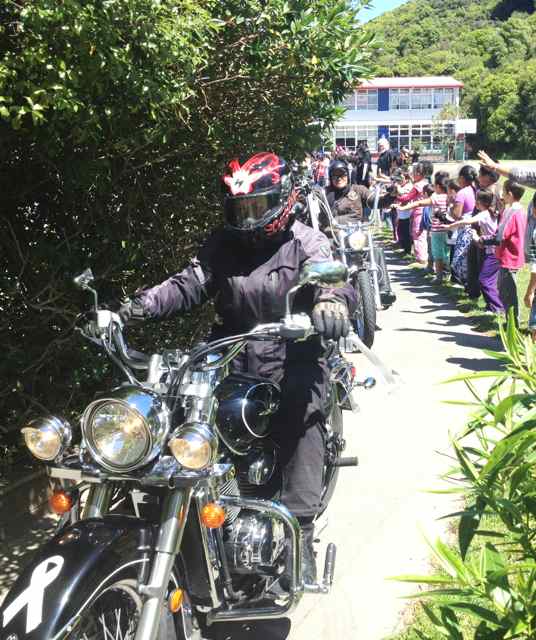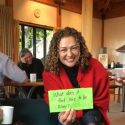 Two of the founders of the annual White Ribbon Ride say E Tū Whānau, a movement that has been working within tikanga Māori to combat domestic violence since 2008, is exactly what Glenn Inquiry’s People’s Report interviewees are calling for.
Two of the founders of the annual White Ribbon Ride say E Tū Whānau, a movement that has been working within tikanga Māori to combat domestic violence since 2008, is exactly what Glenn Inquiry’s People’s Report interviewees are calling for.
Motorcyclists, Tauranga based Jak Paki from the Super Maori Fullas, and Phil Paikea, a member of Northland’s Bream Bay Community Trust, started the White Ribbon Ride seven years ago.
“We support the White Ribbon ride because it is anti-violence, but E Tū Whānau is much broader. It is not a programme; it’s a lifestyle. Its focus, and ours, is always on our people and developing their potential,” Jak Paki says.
He and Phil Paikea say that the Glenn Inquiry’s People’s Report findings are completely in line with the E Tū Whānau kaupapa.
Restore tikanga, support healing
The People’s Report, released in June 2014, says that interviewees felt a system that strengthens cultural identity, restores tikanga into whānau and values communities is crucial for people to heal.
“We’re all about evoking change in the people we engage with. Along with all the other E Tū Whānau grassroots anti-violence activists, we are in it for the long haul”.
Last Saturday, (November 22) Phil Paikea and other members of the Bream Bay Community Trust handed the kaupapa to a new group and presented three taonga – a korowai, a wakahuia and a pounamu, in a ceremony at Takahiwai Marae.
“You need to know when to let go of a kaupapa and let others take it the next step,”Phil Paikea says.
By Māori, for Māori
The Chair of the E Tu Whānau Māori Reference Group, Darrin Haimona says Māori have known for a long time that past approaches and mainstream services were not working for them, and that they had to come up with their own solutions.
“We realised that we needed to put our energy into what we could change and where we could make a difference – E Tū Whānau grew from that; it is grounded in our tikanga and what makes us strong as Māori, and it is supporting positive change for whānau across Aotearoa.”
“The People’s Report is powerful because it enables survivors of abuse to speak their truth. The 500 people who were interviewed for The Report identified with key themes that underpin E Tū Whānau – early intervention, a whole-of-whānau approach, cultural understanding and community action.
“And this is working for Māori. E Tu Whānau is supporting action across the country – in whānau and iwi, with hapū on marae, in communities, prisons, schools, and churches,” he says.

